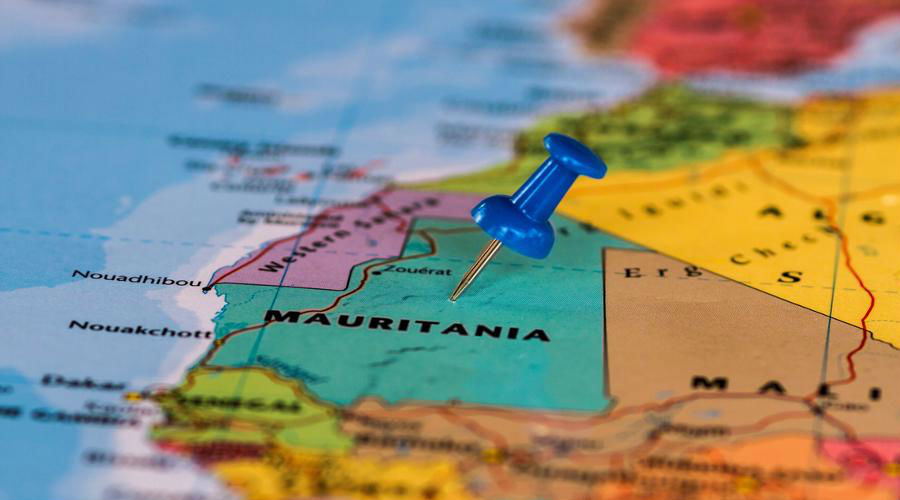Mauritania’s hydrocarbon sector is attracting more global oil companies, including Britain’s BP and U.S-based Exxon Mobil. Mauritania’s Inland and coastal areas sit on giant oil and gas reserves making the country a potential major oil producer in North Africa that also benefits from its geographical location to transform into a major crude exporter to international markets, particularly Europe.
Undoubtedly, recovery of Mauritania’s hydrocarbon sector in the medium term will positively affect efforts towards improving the performance of the economy and increasing exports after the country suffered severe hardships caused by a decline of prices of metals which constitute a pillar of its economy. Despite this, developing this sector continues to face challenges including uncertainty about political stability, weak regulatory and legal frameworks and poor infrastructure.
Huge Reserves
Global oil companies’ interest has surged recently amid new oil and gas discoveries in Mauritania as prospecting and exploration have increased in countries of similar geology such as neighbouring Senegal and distant Gabon.
Oil production started in Mauritania in 2006 at the offshore Chinguetti field, discovered by the Australian firm Woodside Petroleum and its partner Hardman Resources in 2001. The field was originally estimated to produce an average 75,000 barrels per day (bpd), but its output declined to an average of between 50,000 to 6,0000 bpd in the first three years of operation, and continued to fall sharply to stand at below 5000 bpd last year. The field was originally estimated to have proven and probable reserves of 123 million barrels of oil, but the reserves in fact were no more than 35 million barrels.
Despite this decline, promising prospects in the sector encouraged foreign companies to continue prospecting and exploration for oil and gas across the country. BP was among major global companies exploring for natural gas in the Atlantic waters 300 kilometers west of the capital Nouakchott.
New discoveries are estimated to contain more than 15 trillion cubic feet of gas in high quality reservoirs. BP said the reserves could be as much as 50 trillion cubic feet, which means Mauritania would continue to produce gas for the next 50 years.
Additionally, several other foreign oil and gas companies, such as Exxon Mobil, are expected to start exploring for oil and gas off the Mauritanian coast. This December, the US-based company signed production sharing contracts with Mauritania’s Ministry of Petroleum, Energy and Mines for three deepwater offshore blocks, C22, C17 and C14. Earlier in May, France’s Total also signed an exploration and production contract with Mauritania to perform exploration works on offshore Block C7, in Mauritania’s territorial waters.
US-based Kosmos Energy previously signed production agreements with Mauritania after huge oil reserves were discovered. In 2015, the company Kosmos estimated the new discovery to have resources of approximately two billion barrels of oil equivalent recoverable across both Mauritania and neighboring Senegal.
Mauritania can exploit its location on the Atlantic Ocean and huge potential output of oil and gas to increase its hydrocarbon exports to various markets, especially Europe, which seeks to diversify its oil and gas imports due to political tensions with Russia and security tensions in North Africa.
Potential Implications
Extraction industries constitute a pillar of Mauritania’s economy with gold, iron and copper accounting for 25 per cent of the country’s Gross Domestic Product and about 82 per cent of exports. But a decline in commodities prices on global markets poses a challenge to Mauritania with economic growth falling to as low as 1.7 percent in 2016, compared with an average of 5.3 percent in the period from 2010 and 2013.
Despite oil prices expected to remain below USD 60 a barrel, the recovery of the hydrocarbon industry driven with the start of oil and gas production, can reflect positively on the Mauritanian economy in the medium term. It is also expected to accelerate economic growth once again, contribute towards doubling the state’s income from fees imposed on foreign companies that now stand at less than USD 29 million and potentially increasing exports to foreign markets thus bolstering the country’s monetary and financial stability.
Nonetheless, the hydrocarbon industry still faces several challenges the most important of which arise from uncertainty about the regulatory framework of this sector. This is evidenced, for instance, by the dispute which arose between the developers of the Chinguetti field and the Mauritanian government in 2005. Then, the government demanded the two Australian companies pay about A$150 million to reach a settlement to the dispute over singing “invalid” oil production contracts with the former government.
The dispute eventually caused a decline in the field’s output and impacted exploration operations on the Mauritanian coast. As a result, Woodside Petroleum sold its onshore and offshore production development and exploration interests in Mauritania to Malaysia’s state energy firm Petronas for USD 418 million.
Poor infrastructure and shortage of local workers for operations exacerbate the issue, according to Tullow Oil. Additionally, Mauritania is planning to prioritize demarcation of maritime border with Senegal, especially because some discovered offshore fields sit on the common border, which would increase the possibility of a conflict breaking out between the two countries that would be driven by build-ups of past political and military tensions since 1989.
It can be said that despite a lack of several fundamentals for a strong hydrocarbon industry, Mauritania’s promising oil and gas potential may encourage several companies to support the country to control and utilize its giant resources.


